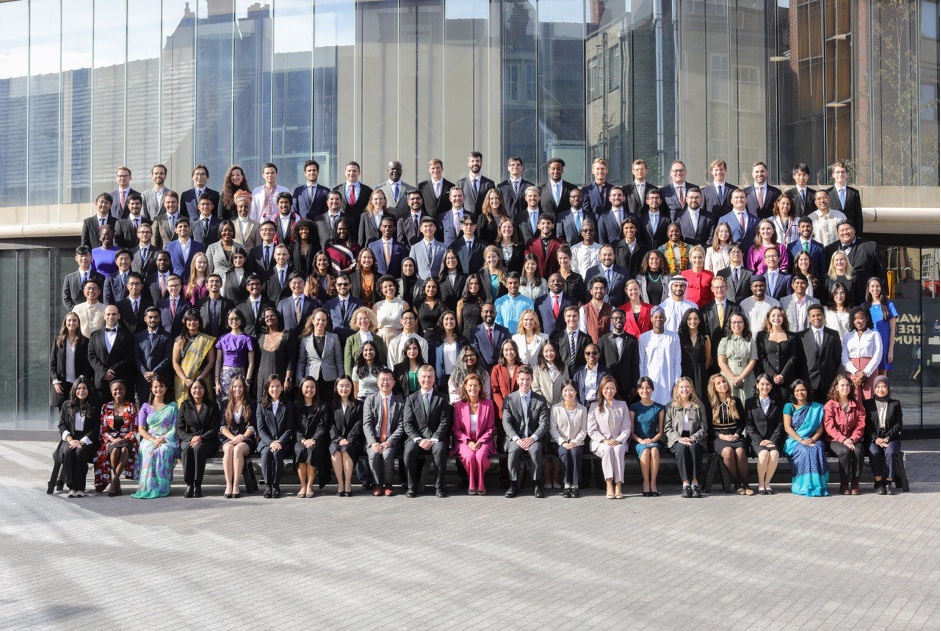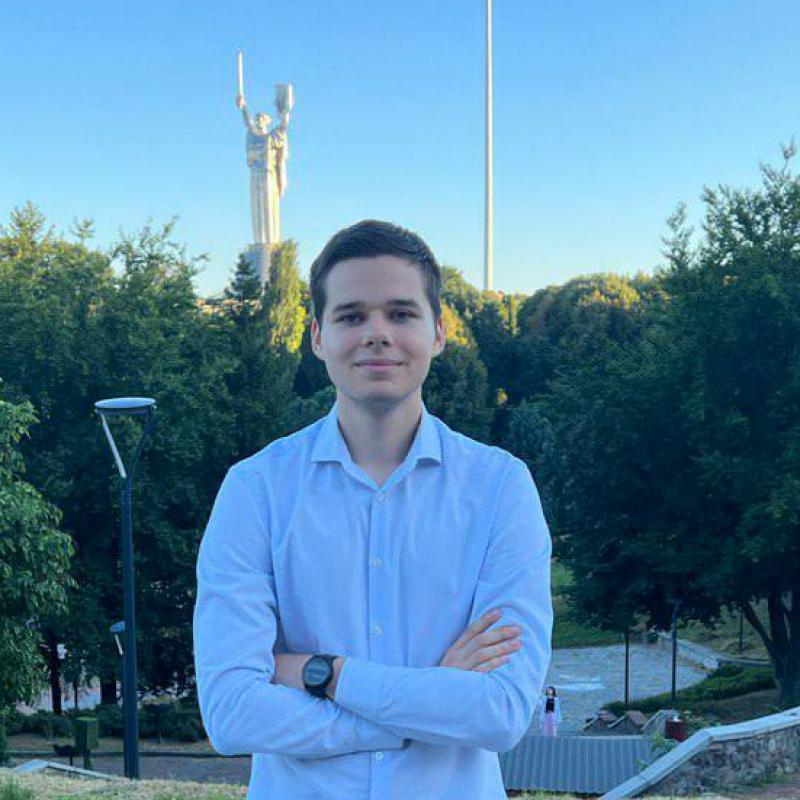Take-aways from the first weeks at the Blavatnik School of Government
Erik Kucherenko (MPP 2023) reflects on his first weeks as an MPP student.

The day following my formal matriculation, I was sitting in a cosy Salisbury café waiting for the bus to Stonehenge. These precious moments gave me the opportunity for calm reflection far from the intense Oxford routine. I looked back at my journey coming here and becoming a Master of Public Policy Candidate at the Blavatnik School of Government.
My journey started in June 2022 when I spent a few days conducting research on various MPP and LLM programmes, finally concluding that the Master of Public Policy at the Blavatnik School best suited my professional and academic interests. It’s a multidisciplinary, professional, one-year degree, giving access to an incredible cohort of 150 experienced policymakers and outstanding faculty teaching economics, political science, political philosophy, law, practical aspects of governance.
Now, a few weeks into the programme, I reflected on my experience, on the key insights, the challenges and opportunities for personal and professional growth, and on what it will take to make the best use of the time and energy at Oxford.
What are my five top takeaways?
1. A strong sense of identity frees from qualms
At first, Oxford, and even the Blavatnik School, can be overwhelming. Lectures, seminars, inspirational talks, networking events – at the same time, at different locations, all competing for your attention. I would not be surprised if the first week of our Economics lectures deliberately introduced the concept of scarcity purely to help students understand what is going on with their time and energy.
Yet what helps is truly understanding yourself, your needs and interests, your core interests and priorities. In other words, you must have a strong sense of identity. Knowing who you are and why you are here. And shaping your schedule in accordance with this understanding.
This shifts the paradigm. You are no longer missing out; instead, you are blocking out the time for something important for you. Your time is scarce, but you will be happy and content as long as you act in accordance with your identity, your self. And yes, it is perfectly fine to skip that party or that outstanding scholar’s address to read an interesting article, brainstorm for a reflective blog or just to reward yourself with a rare moment alone.
2. Planning is the worst enemy of anxiety
With countless deadlines, bottomless reading lists and constant emails, it is easy to fall into a panic. So, what’s the answer to counter the resulting anxiety?
Planning. This makes even the hardest and busiest tasks easier to cope with, and applies to meeting academic requirements, engaging in extracurricular activities and exploring new locations. You might not be reading this blog had it not been one of the points in my plan for the weekend. Holding an improvised strategic session and mapping priorities boost clarity, enabling you to deal with any challenge. You are no longer anxious.
3. Knowledge makes a difference when internalised
From experiential learning teamwork activities during our induction weeks, to a recent seminar where we applied game theory concepts by playing the actual games and making our choices – the content of the MPP is aimed at internalisation of knowledge, not merely acquiring it. And the impact of this is almost instantaneous.
I am sure that everyone in our cohort found it amusing as we evaluated the costs of watching the football instead of studying on Sunday. Yet this episode is truly indicative of how we internalise theoretical concepts, and have started applying them in our thinking.
The first week of our Foundations classes focused on utilitarianism, promoting independent thinking, and the rational and pragmatic calculation of the costs and benefits of policy choices, unconstrained by the prevailing public perception. It prompted me to rethink how policies should be developed in my home country Ukraine as it is countering the Russian aggression and reforming to become a fully-fledged member of the European Union and NATO.
Other topics in the Foundations classes – such as historical injustice and gender aspect – have helped me to gain insights into the arguments on both sides concerning the recent referendum on indigenous rights in Australia.
4. Reflection is essential, both in personal and academic growth
Reflection helps to distinguish between the important and unimportant, to change thinking and behaviour, carving out time in the hectic whirl of events for understanding what you want to do.
It is also critical in academic development. Simply going through the reading list, listening to the lectures and even understanding the new concepts are not enough. These should be complemented by independent reflection, an attempt to apply the newly acquired knowledge to relevant challenges, to the debates that our societies are facing.
Reflection deserves a separate block in your schedule.
5. True leadership is about taking initiative
Leadership is often not about heroic feats or motivational speeches. Teamwork activities during the Induction and Policy Challenge sessions at the School have taught us that leadership is about making the first step: suggesting a new way of working or providing a concrete structure to a general idea.
Teamwork may both accelerate and slow down achieving the result, and to tap into the creative potential of the team you need to take the initiative, build a platform the team can work upon, then come up with drafts and concrete proposals, push for more progress. This is what I discovered the true leadership to be.
What’s next?
As I wrote the concluding part of this blog, I was on my way back to Oxford and my day trip was approaching its end. Yet my academic journey at Oxford was only beginning.
Determined to take as much as possible from this wonderful experience, I plan to bring to life many plans - excel in my studies, contribute to the Oxford Policy Podcast, write more blogs on personal and policy matters, organise events to tell the cohort and a wide audience more about Ukraine, its fight for independent and peaceful future, its incredible people.
In pursuing these goals, I will rely on the five take-aways from this blog.
Erik is an Oxford Ukraine Scholar.

